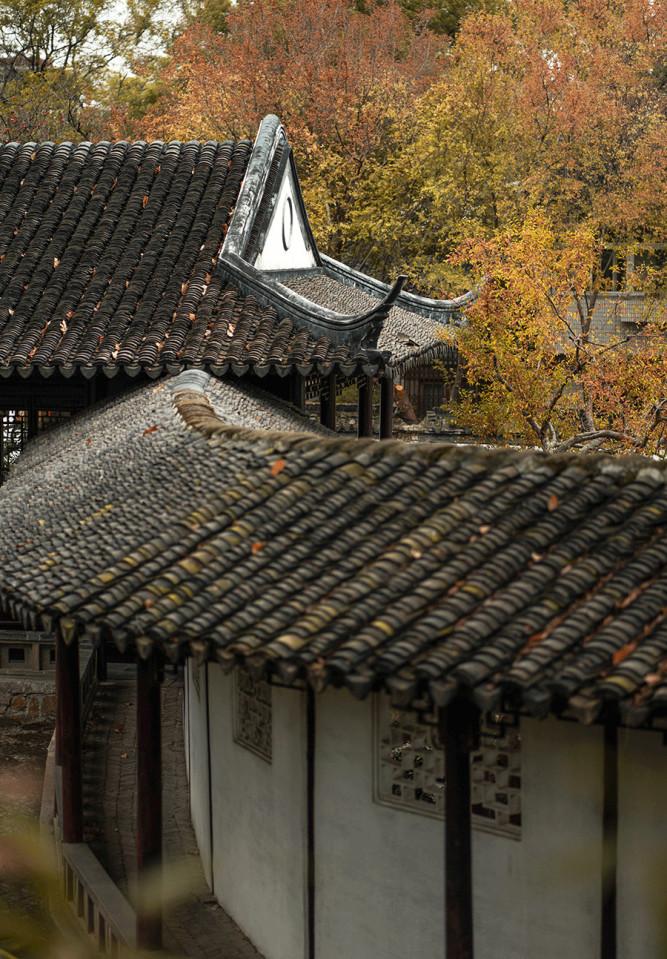
Chinese
Junyu
+
Gardens, should be a kind of life.
Figure | anthracene
People often say that "there is heaven on the top, suzhou and Hangzhou on the bottom", Jiangnan has been prosperous since ancient times, and the gardens scattered throughout it have fascinated countless people for a long time, especially when the spring rain is even more cloudy, which makes people feel confused, such as swimming in the middle of the painting. The garden is the most advanced oriental aesthetic, rather than scrambling to take photos and punch cards on the tree, it is better to quietly appreciate.
The atmosphere of Ming and Qing dynasty garden design can allow people to experience the beauty of different arts and the beauty of artistic conception. It is revealed in the state of the highest good, the most beautiful, the most true of man. Paying attention to the harmonious and unified atmosphere of man and nature embodies the leading idea of ancient Chinese architecture and landscape planning aesthetics - the concept of the unity of heaven and man. Because of nature, higher than nature, cross-space set wonders in a garden, miniature nature in the gathering. Refine and sublimate the state of mind to appreciate things.
Figure 1.2 | anthracene
The ancient Wen Man-made Garden pays attention to changing scenery step by step, moving scenery by step, or being deep and endless, or suddenly cheerful, or living in the real, or seeing the truth in the virtual. The creation of the garden is like a game of heart and interest, wonderful, but without trace. Understanding the philosophy of the ancients' framing, the beauty of the garden will reveal another layer of deep meaning.
Figure 2| anthracene
The aesthetic of creating gardens with painting intentions and painting gardens seems to have some meaning of literati and craftsmen in the matter of gardening.
If combined with the historical background, to some extent, it also reflects the resistance of the literati to the concept of popular gardening.
The proliferation of popular gardening concepts stimulated the Ming and Qing literati to expound their own gardening concepts and tasting standards for gardens from a clearer standpoint.
After the late Ming Dynasty, the great abundance of materials stimulated social consumption, the social atmosphere was frugal and simple to luxury, the atmosphere of secular pleasure was stronger than that of the previous generation, and the construction of gardens was also from frugality to luxury, forming an atmosphere of competing for wealth and competing for beauty, and valuable gardens abounded.
Wang Shizhen quoted Zhang Fengyi's observation in the "Record of Qiuzhi Garden", which described the extravagant atmosphere of the man-made garden at that time: "The materials seek Shu and Chu, the stone seeks the Dongting and Wukang, the Yingling Bi and Benmu seek Baiyue, Ninan, Anshi, jiaozhou, and the birds seek from Longruo Minguang", people go thousands of miles to buy expensive wood and stone, Luo Zhi ancient wood and strange stones to decorate the garden, as a personal advertisement.
And this pursuit of luxury, flowing in the vulgar garden taste, just with the traditional literati "still simple", the pursuit of unworldly elegant culture to form a great tension, in response to this phenomenon, Li Yu in his chapter on the construction of gardens in the opening of the clear meaning, put forward a clear proposition, "civil affairs, the most taboo luxury."
The family of the bandits and the common people should be frugal and simple, that is, the prince should also take this as a shang", he believes that gardening is the most taboo and extravagant, whether it is a commoner or a prince, it should be frugal;
Wen Zhenheng, on the other hand, is very repulsive to popular things, regarding them as "bad customs", "not entering the product", "not being unavailable", and "impatient with customs", and repeatedly emphasizing the value orientation of "Ning Gu is not timely, Ning Pu is not skillful, ning frugal is not vulgar".
The "simple" and "elegant" advocated by Wen and Li can be said to represent the literati's aesthetic taste for the garden, and this simple and elegant aesthetic is actually consistent with the philosophical concept of "returning to simplicity" and pursuing the great beauty of heaven and earth in traditional culture.
In the eyes of the literati, a garden is not envied because of the material it possesses, as the Qing dynasty Qian Yong said, "The garden pavilion is not wide, not gorgeous, always depending on the owner to pass on" ("Walking in the Garden"), in the final analysis, it is because the person who lives in the garden gives it a spiritual value that transcends materials and is passed on to future generations.